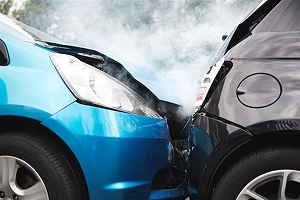 A car accident can turn your life upside down in seconds. Between injuries, insurance paperwork, and medical bills, knowing what to do next can feel overwhelming. Taking the right steps immediately after a crash not only protects your health but also strengthens your legal claim.
A car accident can turn your life upside down in seconds. Between injuries, insurance paperwork, and medical bills, knowing what to do next can feel overwhelming. Taking the right steps immediately after a crash not only protects your health but also strengthens your legal claim.
Unlike most other states, New Jersey follows a no-fault approach to insurance coverage for car accidents, so it’s crucial to understand your responsibilities—and your rights—before speaking with insurers or signing anything.
Step 1: Ensure Safety and Report the Accident
Your safety and the safety of others come first. If possible, move vehicles to a safe location and call 911 right away. Even if the collision seems minor, always wait for the police. Under New Jersey law (N.J.S.A. 39:4-130), you must report any crash that causes injury, death, or property damage over $500.
Ask for a copy of the police report—this official document includes critical details such as the date, time, driver information, and officer observations. Insurance companies and courts often rely on it when determining fault or liability.
Step 2: Gather Evidence at the Scene
Evidence collected at the accident scene can make or break a claim. Use your phone to photograph:
- Vehicle damage from multiple angles
- Skid marks, debris, and road conditions
- Injuries to yourself or passengers
- Traffic signals, signs, or surveillance cameras nearby
Exchange names, contact information, insurance details, and driver’s license numbers with all parties. If there are witnesses, politely ask for their names and phone numbers.
Example: If another driver ran a red light, witness statements and photos of the intersection could prove your version of events when insurers dispute liability.
Step 3: Notify Your Insurance Company
Under New Jersey’s no-fault insurance system, your own insurance—through Personal Injury Protection (PIP)—pays for your medical expenses and some lost wages, regardless of who caused the crash. This system is designed to provide fast access to medical care without waiting for fault to be determined.
However, be cautious when speaking with adjusters. Avoid recorded statements or accepting early settlements without legal advice. Insurance companies often aim to minimize payouts, and even a casual statement can be used against you later.
Step 4: Seek Medical Treatment and Track Your Recovery
Some injuries, such as concussions or whiplash, don’t appear immediately. Always seek a full medical evaluation within 24 hours of the accident. Follow your doctor’s recommendations and attend all follow-up appointments.
Keep detailed records of the following:
- Medical bills and prescriptions
- Doctor’s notes and diagnoses
- Missed workdays and income losses
For example, if neck pain develops two days later, those medical records will link your injury directly to the crash—key evidence in both insurance and legal claims.
Step 5: Consult an Experienced Car Accident Lawyer
Navigating insurance claims and injury law can be complex. A skilled car accident lawyer in NJ can handle negotiations, gather evidence, and calculate full compensation for medical expenses, property damage, lost income, and pain and suffering.
A lawyer also ensures compliance with filing deadlines. In New Jersey, the statute of limitations for most car accident claims is two years from the date of injury. Missing this deadline can permanently bar your right to recover damages. Early legal representation helps preserve evidence and strengthens your case.
Read Also: Injured in a Car Accident? How a Lawyer can Help
Contact the Law Offices of David J. Karbasian, PC
If you’ve been injured in a car accident, you deserve answers, support, and strong legal representation. At the Law Offices of David J. Karbasian, PC, we offer free consultations and never charge a legal fee unless we recover compensation for you. We’re available evenings and weekends, and we can meet you at home or in the hospital if needed.
Call 1-877-HOGLAW1 or contact us online to discuss your case. We’ll take care of the legal process while you concentrate on your recovery.














